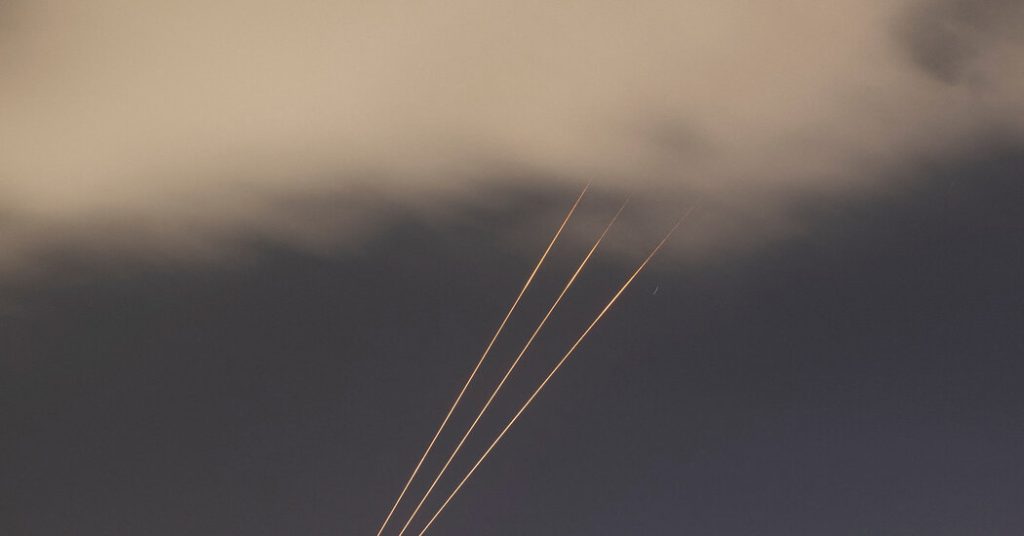Iran launched a missile attack on Israel, which was intercepted by Israel, the U.S., and Jordan, resulting in minimal damage and casualties. Experts believe this attack was the first time Iran attacked Israel from Iranian territory. The attack has raised questions about whether the conflict between the two countries will return to a long-running shadow war or escalate into a more dangerous stage. Despite the attack being telegraphed in advance and causing limited casualties, the potential for de-escalation remains high.
The weapons used in the attack were more advanced than those typically seen in attacks on Israel, with greater range and speed. The attack prompted emergency diplomacy efforts, with President Biden expressing support for Israel and planning a meeting with G7 leaders. The attack also brought attention to the long shadow war between Iran and Israel, which often involves proxies like Hamas and Hezbollah. The lack of direct communication between the two countries increases the risk of military miscalculations.
Some analysts view the attack as mostly performative and ultimately unsuccessful, while others see it as a significant escalation in the conflict. The lack of direct communication between Iran and Israel and the intolerance of direct strikes by Iran make the potential for future conflict high. The attack highlights the ongoing tension and conflict between the two countries, as they each employ different tactics and strategies in their shadow war.
The attack has sparked debate about the political bias in media coverage, with a senior NPR editor accusing the outlet of having a liberal bias in its coverage of issues like Covid, Hunter Biden’s laptop, and the war in Gaza. The defense from NPR challenges these claims, stating that they cover a wide range of challenging stories. The attack has also raised questions about the future of media coverage and the importance of unbiased reporting on complex issues.
In the aftermath of the attack, the international community is closely monitoring the situation, with emergency meetings planned at the United Nations Security Council and Israel’s war cabinet. The potential for further escalation in the conflict between Iran and Israel remains a concern, as both countries assess their next steps. The lack of direct communication and the history of conflict between the two nations present challenges in finding a peaceful resolution to the ongoing tensions.
Looking ahead, the aftermath of the attack will likely shape future developments in the conflict between Iran and Israel. The potential for further attacks and escalations remains a concern, as both countries navigate the complex dynamics of the shadow war. Understanding the underlying factors and motivations behind the conflict will be crucial in determining the path forward and working towards a peaceful resolution.


